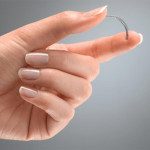 (Reuters) — Women implanted with Bayer‘s (ETR:BAYN) Essure female sterilization device were more than 10 times more likely to require post-procedure surgery than those who underwent laparoscopic sterilization, according to a study published today in the British Medical Journal.
(Reuters) — Women implanted with Bayer‘s (ETR:BAYN) Essure female sterilization device were more than 10 times more likely to require post-procedure surgery than those who underwent laparoscopic sterilization, according to a study published today in the British Medical Journal.
The findings could cast additional doubt on the safety of the Bayer device, which was approved in 2002 as an alternative to surgical sterilization and acquired by Bayer in 2013. It has faced recent scrutiny from U.S. health regulators following numerous patient complaints and calls for its withdrawal from the market.
By 1 year after the initial procedure, 2.4% of Essure patients had required follow-up surgery, compared with 0.2% of those who underwent a minimally-invasive tube-tying procedure called laparoscopic sterilization, the researchers found. That translates to about 21 additional surgeries per 1,000 patients receiving Essure, they said.
“Small risk in large numbers of patients translates into large numbers,” said study leader Dr. Art Sedrakyan, professor of healthcare policy and research at Weill Cornell Medicine in New York. “In some instances, these re-operations are quite major surgeries,” including hysterectomies, Sedrakyan added.
The study analyzed coding data on medical records of some 52,000 women from outpatient ambulatory surgical centers in New York state between 2005 and 2013.
If the New York data were to be extrapolated to Essure use throughout the U.S., it works out to about 10,000 patients getting this type of additional surgery, Sedrakyan said.
Both methods of contraception were equally effective, with about a 1% risk of unintended pregnancies.
Bayer, in a statement, defended the safety and efficacy of its device and cited limitations of the study, including that it was “based on a single database of 1 U.S. state” and unclear if it included patients who had Essure implantation in doctors’ offices.
Bayer estimates there are about 750,000 women using Essure worldwide, about 70% of them in the U.S.
Essure consists of 2 small nickel-titanium coils inserted into the fallopian tubes. Scar tissue forming around the device acts to block the tubes and prevent pregnancy.
Personal injury lawsuits filed against Bayer have claimed the implant led to allergic reactions to nickel, severe pelvic pain, and surgeries to stabilize or remove the device after it shifted. More than 5,000 adverse events have been reported to the FDA, though it is not always clear what role Essure played in any event.
An FDA advisory panel last month recommended that the agency limit Essure’s use until more is known about its safety.

